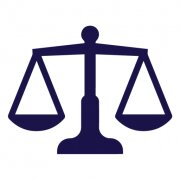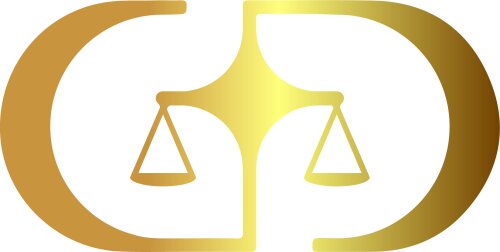Best Family Lawyers in Bahía Blanca
Share your needs with us, get contacted by law firms.
Free. Takes 2 min.
Free Guide to Hiring a Family Lawyer
List of the best lawyers in Bahía Blanca, Argentina
About Family Law in Bahía Blanca, Argentina
Family law in Bahía Blanca, Argentina addresses legal matters that affect family relationships and domestic situations. This area of law governs how individuals interact within their family, ensuring the protection of rights and the fulfillment of responsibilities. Common matters include marriage and divorce, child custody and support, adoption, parental rights, domestic violence, and inheritance. Due to the deeply personal nature of these cases, family law is designed to be sensitive to individual circumstances while upholding the legal standards set by Argentina's Civil and Commercial Code.
Why You May Need a Lawyer
Family law issues are often complex and emotionally challenging. Working with a qualified lawyer in Bahía Blanca can help you navigate the legal system and protect your interests. Common situations where legal help may be needed include:
- Filing for divorce or separation and determining the division of assets
- Child custody and visitation disputes
- Establishing or contesting child support or alimony payments
- Domestic violence protection and restraining orders
- Adoption procedure guidance
- Modifying existing court orders regarding family matters
- Resolving inheritance conflicts among family members
Attempting to resolve these issues without legal representation can be risky and may lead to unintended consequences, especially if the opposing party has legal counsel.
Local Laws Overview
Bahía Blanca is subject to the Argentine Civil and Commercial Code, which regulates family relations nationwide. However, local courts apply this code in accordance with regional practices, and specialized family courts or tribunals exist to handle these matters. Key aspects relevant to Bahía Blanca include:
- Marriage and divorce processes are governed by national law, and both civil and religious unions are recognized.
- Child custody decisions prioritize the best interests of the child, taking into account both parents' situations and the child’s own wishes, if applicable.
- Child and spousal support calculations consider both parties’ financial situations and specific needs.
- Protective measures for victims of family violence are available through urgent court interventions.
- Adoption requires judicial approval with a rigorous process to ensure the welfare of the child.
- Inheritance follows legal succession rules set in the Civil and Commercial Code, with some flexibility for wills.
Frequently Asked Questions
What do I need to file for divorce in Bahía Blanca?
To file for divorce, you must submit a petition to the family court either jointly with your spouse or individually. There is no requirement to prove fault, as divorce in Argentina is now unilateral. Documentation such as marriage certificates and information on children or assets must be included.
How is child custody decided?
Court decisions are based on the child’s best interests, considering emotional bonds, parental capability, and any risk factors. Joint custody is common but not automatic-each case is evaluated individually.
Can I modify child support or custody agreements?
Yes, if there is a significant change in circumstances, such as income loss or a change in the child’s needs, you can request a modification through the court.
What protection is available against family violence?
Immediate protective measures, such as restraining orders and removal of the aggressor, can be requested from specialized family courts or police stations. Support services for victims are also available.
How does adoption work in Bahía Blanca?
Adoption is a judicial process requiring assessments of the adoptive family's suitability and the child’s situation. The court’s priority is the child's welfare, and the process can take several months depending on case specifics.
What happens to joint property after a divorce?
Assets acquired during marriage are usually considered community property and will be divided equitably. Parties may agree on the division or have the court decide if no agreement is reached.
How can I establish or contest paternity?
Paternity can be established voluntarily or by court order, often with genetic testing. Either parent, or the child through a guardian, may request this process in family court.
What inheritance rights do children and spouses have?
Under Argentine law, children and spouses are compulsory heirs, meaning they are entitled to a fixed portion of the estate. This cannot be completely overridden by a will.
Do I need a lawyer for every family law issue?
While not always legally required, having a lawyer ensures your rights are protected and the process is followed correctly, especially in complex or contentious cases.
Are there alternatives to court for resolving family disputes?
Yes, mediation is encouraged for many family disputes. The court may refer parties to a mediator before proceeding with a trial in order to seek a mutual agreement.
Additional Resources
If you need more information or help with family law issues in Bahía Blanca, consider these resources:
- The Family Court of Bahía Blanca (Juzgado de Familia)
- Bureau of Domestic Violence (Oficina de Violencia Doméstica)
- Public Defender’s Office for minors and individuals without resources (Defensoría Pública de Menores e Incapaces)
- Bar Association of Bahía Blanca (Colegio de Abogados de Bahía Blanca) for lawyer referrals
- Municipal social services and psychological support centers
Next Steps
If you are facing a family law issue in Bahía Blanca, start by gathering all relevant documents, such as identification, marriage or birth certificates, and any prior court orders. Make a list of questions and concerns about your situation. Then, contact a qualified family lawyer or the local bar association for a referral to a specialist. Many lawyers offer initial consultations to discuss your case and outline possible strategies. If immediate protection is needed, visit the nearest family court or police station for urgent assistance. Taking timely action and seeking professional advice can make a significant difference in protecting your rights and resolving your family law matter efficiently.
Lawzana helps you find the best lawyers and law firms in Bahía Blanca through a curated and pre-screened list of qualified legal professionals. Our platform offers rankings and detailed profiles of attorneys and law firms, allowing you to compare based on practice areas, including Family, experience, and client feedback.
Each profile includes a description of the firm's areas of practice, client reviews, team members and partners, year of establishment, spoken languages, office locations, contact information, social media presence, and any published articles or resources. Most firms on our platform speak English and are experienced in both local and international legal matters.
Get a quote from top-rated law firms in Bahía Blanca, Argentina — quickly, securely, and without unnecessary hassle.
Disclaimer:
The information provided on this page is for general informational purposes only and does not constitute legal advice. While we strive to ensure the accuracy and relevance of the content, legal information may change over time, and interpretations of the law can vary. You should always consult with a qualified legal professional for advice specific to your situation.
We disclaim all liability for actions taken or not taken based on the content of this page. If you believe any information is incorrect or outdated, please contact us, and we will review and update it where appropriate.
Browse family law firms by service in Bahía Blanca, Argentina
Bahía Blanca, Argentina Attorneys in related practice areas.









